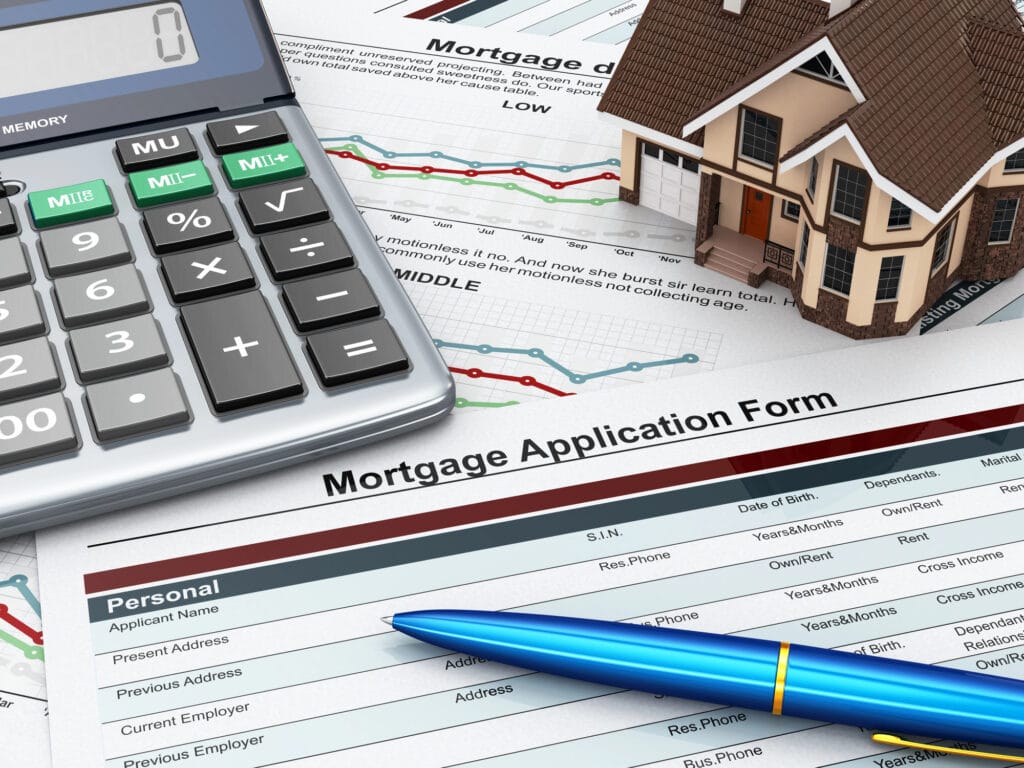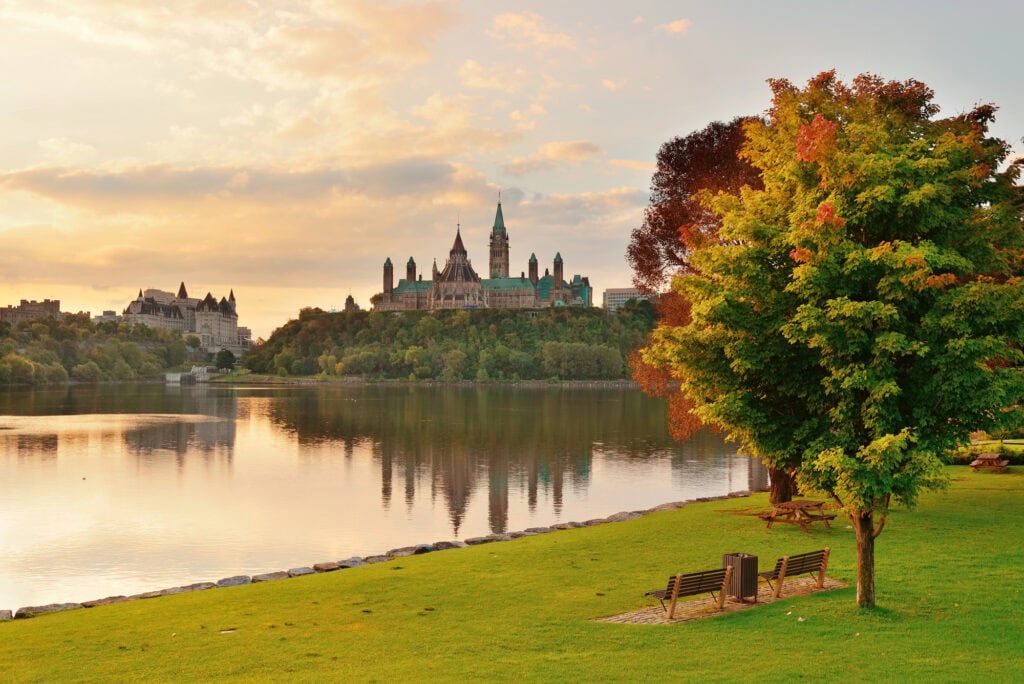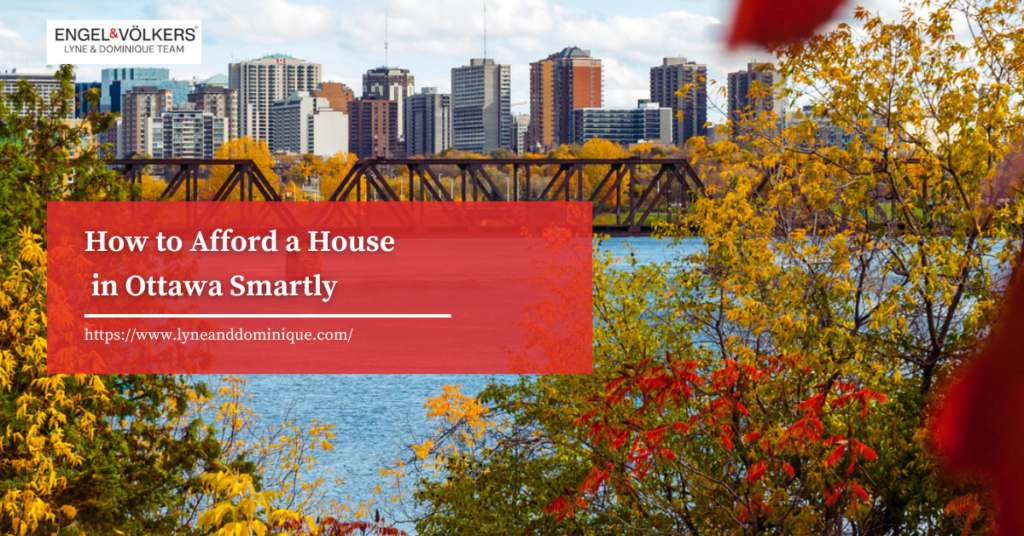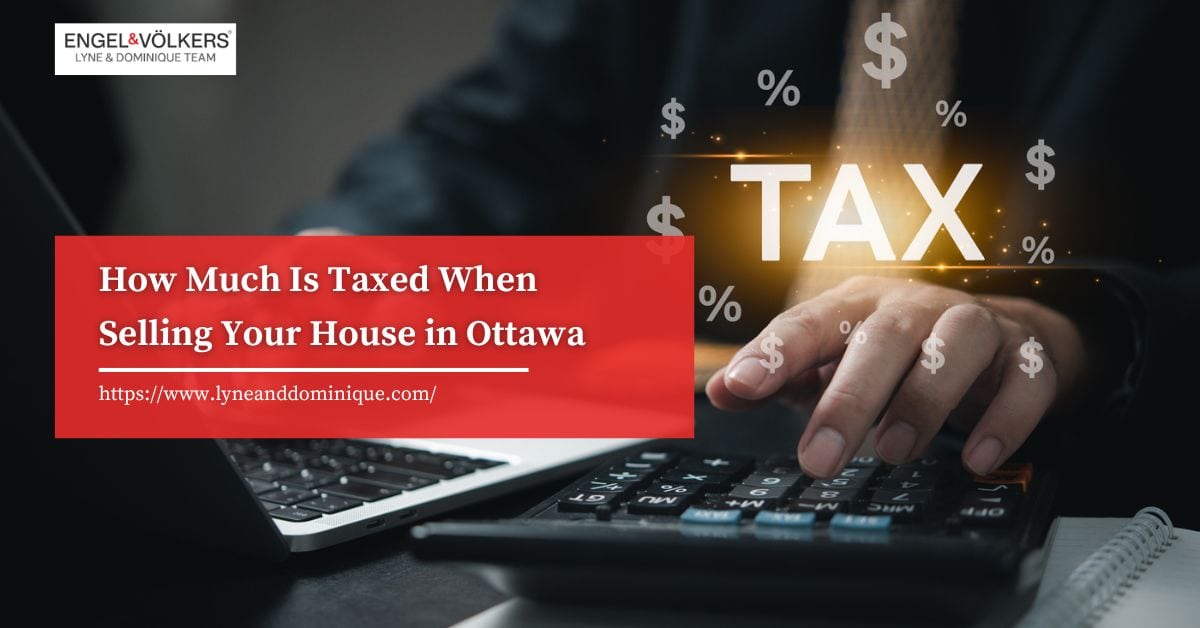Can you really afford a house in Ottawa smartly, or is it just wishful thinking?
Learning how to manage your finances effectively when buying a home in Ottawa is the key to turning your dream into a reality.
From creating a comprehensive financial plan, and exploring mortgage options to checking assistance programs—having a clear roadmap is essential.
In this guide, we’ll break down important budgeting tips and hidden expenses to be aware of so you can be fully prepared.
Ready to learn how to afford a house in Ottawa smartly?
Let’s dive into the numbers and strategies you need.
Financial Planning for Buying a House in Ottawa
To buy a house in Ottawa, it’s crucial to start with a solid financial plan. Ottawa, like many bustling cities, has a high cost of living. Rental and housing prices here vary by neighbourhood.
According to the Canadian Real Estate Association (CREA), as of August 2024, the average home price in Ottawa is $646,000. This gives you an idea of what you need to spend to buy a home in this area.
The average cost of living for a single person in Ottawa is around $3,827 per month. However, this amount can vary based on personal preferences and lifestyle choices. Some people might spend more or less depending on their habits and needs.
You can estimate your costs using Numbeo data. This tool can help you get a clearer picture of what you might spend on various expenses, helping you budget more effectively.
A good financial plan helps you avoid surprises that could derail your home-buying journey. Being prepared means you can focus on finding the perfect home without worrying about unexpected expenses.
Essential costs such as the down payment, which typically ranges from 5% to 20% of the home’s purchase price, are just the beginning.
Closing costs can add 3-5% to the purchase price and include lawyer fees, title insurance, and land transfer taxes.
Additionally, ongoing expenses like property taxes, utilities, home insurance, and maintenance must be factored into your budget.
5 Key Budgeting Considerations for Homebuyers in Ottawa:
- Down Payment: Plan for at least 5-20% of the home’s purchase price.
- Closing Costs: Allocate 3-5% of the purchase price for these expenses.
- Property Taxes: Research Ottawa’s property tax rates and incorporate them into your budget.
- Utilities and Insurance: Estimate monthly costs for utilities and home insurance.
- Maintenance: Set aside funds for regular home maintenance and unexpected repairs.
Creating a detailed financial plan is crucial for balancing all these considerations.
Begin by assessing your current financial situation, including income, debts, and savings.
Use this information to determine how much you can afford to spend on a home without compromising your financial stability.
Lastly, consider consulting with a financial advisor or mortgage broker.
These professionals can provide valuable insights and help you navigate the complexities of the home-buying process. They ensure that your financial plan is both realistic and robust.
Take this proactive approach and make your dream of owning a house in Ottawa much more attainable.
Exploring Mortgage Options in Ottawa
When buying a home in Ottawa, it’s crucial to understand the various mortgage options available.
Mortgages are a key part of the process for most buyers. They provide the necessary funds to buy a home and are an essential factor to think about.
There are several types of mortgages to consider. This includes fixed-rate, variable-rate, and government-backed loans.
Each type offers different advantages, so it’s important to choose the one that best fits your needs and financial situation.
To make planning easier, check out our mortgage calculator. It’s user-friendly and can help you get a clearer picture of your finances.
Pre-qualification and pre-approval are also essential steps. These processes give you a clearer picture of your borrowing power and make the home-buying experience smoother.

Types of Mortgages
Fixed-Rate Mortgages: These loans have an interest rate that remains constant throughout the loan term.
The main advantage is the stability of knowing your monthly payments will not change.
However, fixed-rate mortgages often come with higher initial interest rates compared to variable-rate loans.
Variable-Rate Mortgages: These loans have interest rates that can fluctuate based on market conditions.
While they typically start with lower rates than fixed-rate mortgages, the uncertainty of changing rates can lead to higher payments if interest rates rise.
Government-Backed Loans: These include options like the Canada Mortgage and Housing Corporation (CMHC) insured loans, which can offer lower down payment requirements.
The primary benefit is accessibility for buyers who might not qualify for conventional loans, though they often come with additional insurance premiums.
Pre-Qualification vs. Pre-Approval
Pre-Qualification:
A pre-qualification gives a quick estimate of borrowing power without a credit check. It’s a helpful starting point.
However, keep in mind that it’s only an estimate and not a guarantee. The final amount a lender offers could change based on your credit history and current debts.
Pre-Approval:
This involves a comprehensive review of your financial situation.
A detailed credit check and financial review result in a more accurate borrowing amount. Knowing this amount helps you set a clear budget for your home search, ensuring you look at houses within your price range.
Having a pre-approval can make your offer stronger when bidding on a home. It shows sellers that you are a serious and qualified buyer, giving you an edge in a competitive market.
You can check WOWA.ca for Mortgage Pre-Approval Basics to know how much lenders will offer and at what rate.
Conclusion
Carefully exploring your mortgage options and understanding their implications can significantly impact your home-buying experience in Ottawa. Whether you choose a fixed-rate mortgage for stability, a variable-rate loan for potential savings, or a government-backed option for accessibility, being pre-qualified or pre-approved will make your journey toward homeownership much smoother.
Down Payment Assistance Programs in Ottawa
Investigating down payment assistance programs in Ottawa can significantly reduce the initial costs for first-time homebuyers.
Utilizing these programs can make homeownership more accessible by lowering the financial barrier associated with down payments.
3 Key Down Payment Assistance Programs in Ottawa:
- First Home Savings Account (FHSA): Save up to $8,000 per year tax-free, with a lifetime cap of $40,000.
- Home Buyer’s Plan: Withdraw up to $35,000 from sheltered investments without tax penalties, to be repaid within 15 years.
- Government Grants: Various grants are available for first-time homebuyers. Check offerings for financial support to ease the burden of the down payment.
The First Home Savings Account (FHSA), for example, offers an excellent opportunity to accumulate savings over time. This program benefits from tax advantages and is particularly useful for those planning their home purchase well in advance.
Additionally, the Home Buyer’s Plan provides flexibility by allowing buyers to leverage their existing investments.
This option can be especially advantageous for individuals with significant retirement savings. If you have a substantial amount saved in your Registered Retirement Savings Plan (RRSP), you can use it to enter the housing market without incurring immediate tax liabilities.
The plan allows you to withdraw up to $60,000 from your RRSP. This money can be used toward purchasing your dream home, giving you a substantial boost in your home-buying budget.
Using the Home Buyer’s Plan, you can make your investment in a home more manageable. This is especially beneficial for first-time homebuyers who may not have large cash reserves.
Exploring and leveraging these down payment assistance options can make a big difference. It allows first-time homebuyers in Ottawa to manage their finances better.

Understanding the Cost of Living in Ottawa
The cost of living in Ottawa encompasses several essential expenses. Homebuyers must consider property taxes, utilities, home insurance, and maintenance costs.
Additionally, closing costs significantly add to the total expense of purchasing a home. This typically ranges from 3-5% of the purchase price.
Such costs include lawyer fees, title insurance, Harmonized Sales Tax (HST), land transfer taxes and more. These must be factored into your budget to avoid financial strain.
4 Key Cost Factors in Ottawa:
- Property Taxes: These are annual taxes based on the assessed value of your property.
- Utilities: Include regular expenses such as electricity, water, heating, and waste management.
- Home Insurance: Essential for protecting your investment against potential damages and liabilities.
- Maintenance Costs: Regular upkeep and unexpected repairs ensure your home remains in good condition.
Property taxes in Ottawa are a recurring expense that can significantly impact your annual budget.
It’s essential to research the current tax rates and understand how they might change over time.
This knowledge will help you make more informed decisions when selecting a property.
Utilities and home insurance are ongoing monthly expenses that must be carefully estimated.
By analyzing previous bills or consulting with utility providers, you can get a clearer picture of these costs.
Also, remember that home insurance premiums can vary. This is based on the property’s location, size, and age, so obtaining multiple quotes before purchasing is advisable.
Maintenance costs are often overlooked but are crucial for long-term financial planning.
Setting aside a portion of your budget for regular upkeep and unexpected repairs will help you maintain the property’s value. Be smarter to avoid significant out-of-pocket expenses in the future.
Choosing the Right Neighbourhood in Ottawa
First-time homebuyers in Ottawa should carefully consider various neighbourhoods. Compare and assess to find the one that best suits your needs and budget.
Neighbourhoods like Alta Vista, Barrhaven, and Byward Market each offer unique amenities and price ranges. These makes them popular choices for different types of buyers.
Generally, housing prices become more affordable as you move further from downtown Ottawa. This allows buyers to find more spacious properties at lower costs, providing good value for
| NEIGHBOURHOOD | AMENITIES |
|---|---|
| Alta Vista | Parks, schools, shopping centres |
| Barrhaven | Family-friendly, recreational facilities, transit access |
| Byward Market | Restaurants, nightlife, historical sites |
Alta Vista is ideal for those who prioritize green spaces and educational facilities.
This neighbourhood is known for its parks, highly-rated schools, and proximity to shopping centres.
While the price range in Alta Vista is on the higher side, the investment is often justified by the quality of life and community amenities.
Barrhaven is another excellent option, especially for families.
This neighbourhood is more affordable than Alta Vista and offers a plethora of family-friendly amenities such as recreational facilities, parks, and excellent transit access.
Its growing popularity among young families makes it a vibrant and welcoming community.
Byward Market, on the other hand, caters to those who enjoy a bustling urban lifestyle.
This neighbourhood is famous for its vibrant nightlife, diverse restaurants, and historical sites.
While housing prices in Byward Market are among the highest in Ottawa, the convenience and lifestyle it offers can be well worth the investment for those who thrive in a lively urban environment.

Tips for First-Time Homebuyers in Ottawa
First-time homebuyers in Ottawa can significantly benefit from using preferred service providers. Tapping professionals for inspections, legal advice, and moving services ensures a smooth transaction.
They provide reliable and efficient services, helping you avoid potential pitfalls during the home-buying process.
Additionally, leveraging their local expertise can save time and reduce stress.
Consulting with local real estate agents who are knowledgeable about Ottawa’s market is crucial.
These agents can guide you through the buying process and negotiate the best price, ensuring you make an informed decision.
Their insights into neighbourhood trends, property values, and market conditions can be invaluable for first-time buyers.
5 Essential Tips for First-Time Homebuyers in Ottawa:
- Work with a Local Real Estate Agent: Their expertise can help you find the right property and negotiate effectively.
- Get Pre-Approved for a Mortgage: This strengthens your offer and gives you a clear budget.
- Research Neighbourhoods: Understand the amenities, schools, and future development plans.
- Budget for All Costs: Include down payment, closing costs, property taxes, and maintenance.
- Utilize First-Time Homebuyer Programs: Take advantage of government programs and incentives.
Ensure you get pre-approved for a mortgage before starting your home search.
A pre-approval not only strengthens your offer but also provides a clear understanding of your budget, helping you narrow down your options.
Researching neighbourhoods is another critical step.
Look into the amenities, schools, and future development plans for each area to ensure they align with your lifestyle and long-term goals.
This due diligence can prevent future regrets and ensure you invest in a location that meets your needs.
Lastly, utilize first-time homebuyer programs. Government incentives and programs can provide financial assistance, making homeownership more attainable.
These programs often offer benefits such as lower down payments, tax credits, and grants, which can significantly reduce the financial burden on first-time buyers.
Final Words
To afford a house in Ottawa, you need a solid financial plan considering costs like down payments, closing expenses, and ongoing upkeep.
Exploring different mortgage options and leveraging down payment assistance programs can help you make informed decisions.
The cost of living in Ottawa is crucial, encompassing property taxes, utilities, and insurance.
Choosing the right neighbourhood will significantly impact your lifestyle and affordability.
By understanding these elements and following expert advice, you’re well on your way to homeownership in Ottawa.
Keep these insights handy for a smoother, more confident home-buying journey.
FAQs
How to afford a house in Ottawa?
To afford a house in Ottawa, start with a detailed financial plan, including budgeting for the down payment, exploring mortgage options, considering down payment assistance programs, and ongoing expenses.
How much money do I need to live comfortably in Ottawa?
Living comfortably in Ottawa requires an annual income of approximately $60,000 to $100,00,000, which covers housing, utilities, transportation, and other living expenses.
Is it worth buying a house in Ottawa?
Yes, it is worth buying a house in Ottawa due to its stable real estate market, strong economy, and quality of life.
How much mortgage can I get with a $60,000 salary?
With a $60,000 salary, you may qualify for a mortgage amount ranging from $250,000 to $350,000, depending on your debt-to-income ratio and credit score. Check out our user-friendly mortgage calculator for a clearer picture of your finances.
What are the down payment assistance programs available in Ottawa?
First-time homebuyers in Ottawa can access government programs like the First Home Savings Account (FHSA) and the Home Buyer’s Plan to reduce initial costs.
How can I explore mortgage options in Ottawa?
Explore mortgage options in Ottawa by consulting mortgage lenders about fixed-rate, variable-rate, and government-backed loans to find the best fit for your financial situation.
What should be included in my budget when buying a house in Ottawa?
Include the down payment, closing costs, property taxes, utilities, insurance, and maintenance in your budget when buying a house in Ottawa.
What are the key cost factors to consider when living in Ottawa?
Key cost factors in Ottawa include property taxes, utilities, home insurance, and maintenance, which should be factored into your budget.
Looking to Buy Your Dream Ottawa Home?
Work with a trustworthy REALTOR® who can offer professional advice and handle negotiations to make the process as smooth as possible. This can make all the difference in your home-buying experience.
That’s where we step in – we’re not your typical Realtors; we’re Matchmakers! We connect you with the right sellers to help you find the best deal for your dream Ottawa home.
Reach out to us, Lyne & Dominique, for personalized assistance today. With our expertise in the local market, we’re here to guide you through the buying process with ease!
Ready to find your dream home? Contact the Ottawa Experts NOW




